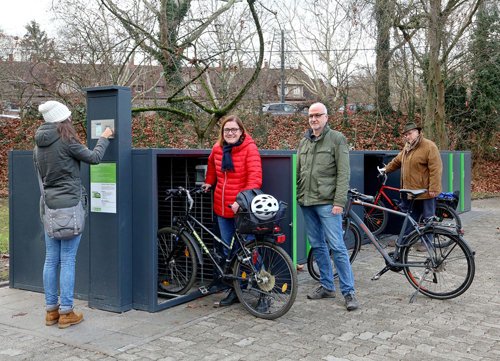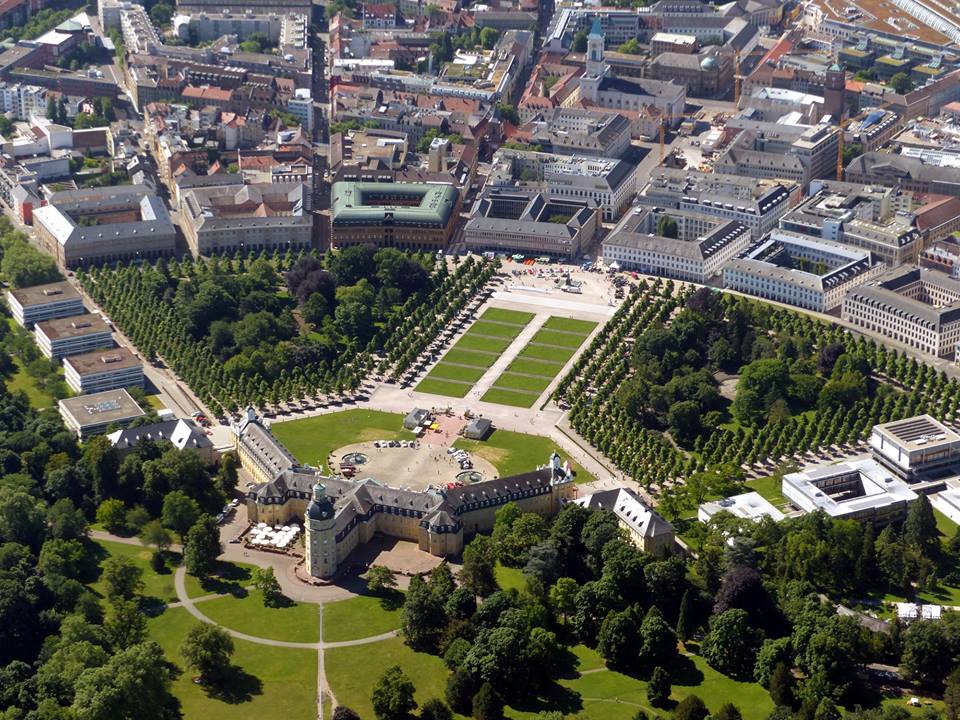Thessaloniki gets ready for its metro launch in November
The underground rapid transit lines have been under construction for almost two decades due to various project delays
 TheMayor.EU logo
TheMayor.EU logo The German city offers unique modern mobility solutions
The city of Karlsruhe, in southwest Germany, the second-largest city in the state of Baden-Württemberg, has had a scale plan about its transportation since 2012. Working together with the administration, public and relevant companies, Karlsruhe developed the framework for a sustainable urban mobility system that not only highlights transportation development, it also ensures equal mobility opportunities for everyone in the city. This actions are part of its Urban Development Concept 2020.

The city is already an expert in international transport projects, developing cross-border transportation solutions. In addition, Karlsruhe has designed and implemented a number of sustainable and low-emission transportation solutions. The city has become Germany’s second bicycle capital, increasing bike traffic from 16% to 25% in a 10-year period. Over the past 2 years, the city has also acted as a living lab for the state’s testing of automated and connected driving, working on technology for automated shuttles and buses, as well as automated car sharing systems. As for linking its transportation system, Karlsruhe launched the first TramTrain light-rail system, directing trams from the urban network over to the mainline, giving citizens more accessibility in terms of mobility throughout all corners of the city.

The city is also starting the “Smart Mobility for the Karlsruhe Region” initiative, aiming to step forward as Germany’s premier smart city with a modern mobility lab. The new lab will help establish a real-life traffic prediction system for the region to enhance urban planning strategies and make day-to-day traffic management as efficient as possible, creating a model that can easily be replicated in other cities throughout Germany, as well as around the world.
Source: Karlsruhe Municipality

The underground rapid transit lines have been under construction for almost two decades due to various project delays

Now you can get your wine in Talence by paying directly in Bitcoin

That’s because the state has to spend money on updating the railway infrastructure rather than subsidizing the cost of the popular pass

Rethinking renewable energy sources for the urban landscape

The examples, compiled by Beyond Fossil Fuels, can inform and inspire communities and entrepreneurs that still feel trepidation at the prospect of energy transition

Now you can get your wine in Talence by paying directly in Bitcoin

The 10th European Conference on Sustainable Cities and Towns (ESCT) sets the stage for stronger cooperation between the EU, national and local level to fast track Europe's transition to climate neutrality.

At least, that’s the promise made by the mayor of Paris, Anne Hidalgo

The underground rapid transit lines have been under construction for almost two decades due to various project delays

At least, that’s the promise made by the mayor of Paris, Anne Hidalgo

Hostal de Pinós is located in the geographical centre of the autonomous region

Despite its church-y name, the district has long been known as the hangout spot for the artsy crowds

Urban dwellers across the EU are having a say in making their surroundings friendlier to people and the environment.

Forests in the EU can help green the European construction industry and bolster a continent-wide push for architectural improvements.

Apply by 10 November and do your part for the transformation of European public spaces

An interview with the Mayor of a Polish city that seeks to reinvent itself

An interview with the newly elected ICLEI President and Mayor of Malmö

A conversation with the Mayor of Lisbon about the spirit and dimensions of innovation present in the Portuguese capital














